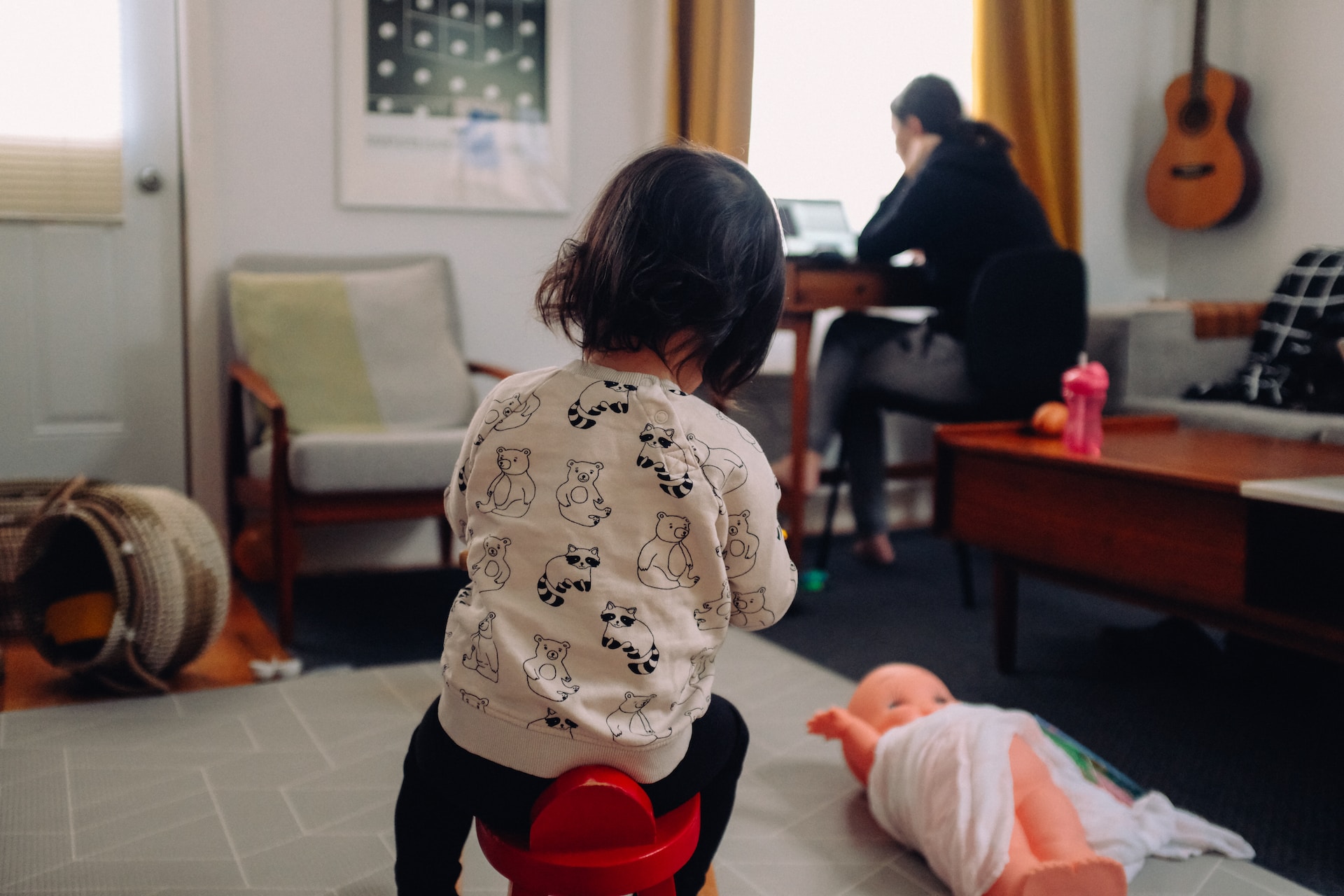How To Work From Home With Kids
Working from home with kids can be a challenge, to say the least. As a parent who has been doing it for a while now, I can say with certainty that it’s not easy. You’ve probably seen all those ads with happy moms and dads working from their laptops while their children play quietly in the background. Well, let me tell you, that’s not always the case. In reality, working from home with kids can be chaotic, distracting, and downright exhausting. But don’t worry, it’s not impossible. With the right mindset, strategies, and support, you can make it work.
In this article, I’ll share some tips and tricks on how to work from home with kids. I’ll cover everything from setting realistic expectations to finding ways to keep your kids entertained while you work. I know firsthand how overwhelming it can be to juggle work and parenting, especially during these unprecedented times. But I also know that it’s possible to find a balance that works for you and your family. So, let’s dive in and explore how to make working from home with kids less stressful and more manageable.
Key Takeaways
- Set realistic expectations
- Establish clear boundaries and designated work time
- Find ways to keep kids occupied and entertained
- Practice self-care
Setting Realistic Expectations for Yourself and Your Children
You need to understand that setting realistic expectations for yourself and your children is key to successfully working from home with kids. It’s not easy to juggle work responsibilities and manage distractions while also being present for your children. According to a study by Harvard Business Review, 70% of working parents reported feeling stressed and overwhelmed while trying to balance work and parenting responsibilities.
To avoid feeling overwhelmed, it’s important to communicate with family members about your work schedule and what you need from them. Let your kids know when you’ll be available to spend time with them, and when you’ll need to focus on work. This can help manage their expectations and reduce interruptions. Additionally, try to set realistic goals for yourself each day and prioritize your tasks. Don’t expect to be able to accomplish everything in one day, and be willing to adjust your schedule as needed to accommodate unexpected interruptions or needs from your children. By setting realistic expectations and communicating with your family, you can make working from home with kids a more manageable experience.
Creating a Schedule that Works for Everyone
Finding a routine that accommodates everyone’s needs can be a challenge, but with a bit of creativity, it’s possible to establish a schedule that works for the whole family. One of the keys to success is balancing productivity and flexibility in your schedule. This means setting blocks of time for work, but also being open to adjusting the schedule as needed to accommodate your children’s needs.
Another important aspect of creating a schedule that works for everyone is involving your children in the planning process. Ask them what activities they enjoy doing and when they prefer to do them. This not only gives them a sense of ownership and responsibility, but it also helps you to better understand their needs and preferences. By working together as a team, you can establish a schedule that allows for both work and play, and ensures that everyone’s needs are being met. Remember, the key to success is flexibility, communication, and a willingness to adapt as needed.
Establishing Boundaries and Designated Work Time
As you navigate through your daily routine, it’s important to establish clear boundaries and designated time for your personal projects, just like a chef who needs to separate ingredients to create a perfect dish. One way to do this is by communicating effectively with your family and letting them know when you need to focus on work. It may be helpful to set up a designated workspace and let your children know that when you are working in that space, they should not disturb you unless it is an emergency.
Another key aspect of establishing boundaries is managing distractions. It’s easy to get sidetracked by household tasks or your children’s needs, but it’s important to stay focused during your designated work time. One strategy is to use a table like the one below to help prioritize your tasks and stay on track. By setting clear boundaries and managing distractions, you can create a more productive work environment and still have time for your family.
| Task | Priority | Time Allotted |
|---|---|---|
| Respond to emails | High | 30 minutes |
| Work on project A | Medium | 2 hours |
| Take a break and play with kids | Low | 30 minutes |
| Work on project B | High | 3 hours |
| Prep dinner | Low | 1 hour |
Finding Ways to Keep Your Kids Occupied and Entertained
When parents are working from home with kids, it can be challenging to balance work and parenting responsibilities. One way to keep kids occupied and entertained is to have a variety of craft activities available, such as painting, drawing, or making paper crafts. These activities not only keep kids engaged, but they also stimulate their creativity and imagination.
Another way to keep kids occupied is through outdoor playtime. Getting outside and enjoying fresh air and sunshine can be a great way to burn off energy and improve mood. Whether it’s playing catch, going for a bike ride, or taking a nature walk, outdoor activities can be a fun and healthy way to spend time together. It’s also important to set limits on screen time and provide educational games to keep kids learning and engaged. By finding ways to keep kids occupied, parents can focus on their work projects while also providing a fun and stimulating environment for their children.
Taking Care of Yourself and Practicing Self-Care
Take some time for yourself and practice self-care to recharge and maintain your well-being while juggling your parenting and professional responsibilities. As a parent who works from home, it is easy to get lost in the never-ending cycle of work and family responsibilities without taking a break to care for yourself. However, neglecting self-care can lead to burnout, which can negatively affect both your personal and professional life. Therefore, it is important to prioritize self-care strategies that work for you and make them a part of your daily routine.
Balancing work and family responsibilities can be overwhelming, but implementing self-care strategies can help you maintain a healthy balance. To get started, try incorporating a 10-minute meditation or breathing exercise into your morning routine to help calm your mind and reduce stress. Additionally, setting boundaries and creating a designated workspace can help separate your work and family responsibilities. Finally, make time for activities that bring you joy and allow you to unwind, such as reading a book or taking a relaxing bath. Remember, taking care of yourself is not selfish, it is necessary for your overall well-being.






